Search Results
Showing results 21 to 40 of 189

Space Stations: Sponge Spool Spine
Source Institutions
In this activity, learners simulate what happens to a human spine in space by making Sponge Spool Spines (alternating sponge pieces and spools threaded on a pipe cleaner).
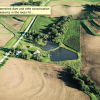
Positive Planning Adds Up
Source Institutions
In this drawing/mapping activity, learners design plots of land while incorporating positive strategies for improving water quality.
The Earth's Timeline
Source Institutions
In this group activity, learners will mark important developments of life on Earth on a timeline (each foot in length representing 200 million years).
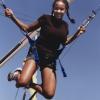
Capturing Homemade Microgravity
Source Institutions
This activity (page 2 of the PDF under SciGirls Activity: Microgravity) is a full inquiry investigation into how ordinary things behave in microgravity, similar to what astronauts experience.
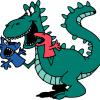
Dinosaur Sock Puppet
Source Institutions
In this activity about dinosaurs, learners first participate in a group discussion about where and when dinosaurs lived, how big they were, and who studies them and how.

Searching for Life
Source Institutions
In this activity, learners discuss how life is defined and conduct a simple experiment, looking for signs of life in three different “soil” samples.

Sensory Hi-Lo Hunt
Source Institutions
In this outdoor activity, learners use only their senses to to find the extremes of several environmental variables or physical factors: wind, temperature, light, slope and moisture.
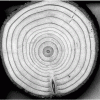
Trees: Recorders of Climate Change
Source Institutions
In this activity, learners are introduced to tree rings by examining a cross section of a tree, also known as a “tree cookie.” They discover how tree age can be determined by studying the rings and ho
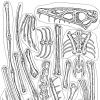
The Great Fossil Find
Source Institutions
On an imaginary fossil hunt, learners "find" (remove from envelope) paper "fossils" of some unknown creature, only a few at a time.
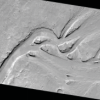
Mars from Above: Carving Channels
Source Institutions
In this activity, learners create channel features with flowing water, comparing their observations to real images of Mars and Earth taken by satellites/orbiters.

Radar Mapping: What's in the Box?
Source Institutions
In this activity, learners mimic remote sensing. Learners use a stick to measure the distance to a "planet surface" they cannot see, and create their own map of the landscape.
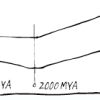
Big Time Tour
Source Institutions
In this activity (on pages 16-21), learners get a sense of geological time by understanding how big a million is.

Mold Mole Molds
Source Institutions
In this activity, learners make different shapes that hold exactly one mole of gas (air).
What's So Special about Water: Absorption
Source Institutions
In this activity about water's cohesive and adhesive properties and why water molecules are attracted to each other, learners test if objects repel or absorb water.
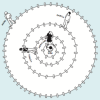
Human-powered Orrery
Source Institutions
In this space science activity, learners work together to create a human-powered orrery to model the movements of the four inner planets.
Light on Other Planets
Source Institutions
In this math-based activity, learners model the intensity of light at various distances from a light source, and understand how astronomers measure the amount of sunlight that hits our planet and othe
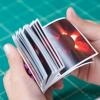
Solar Flare Flip Book
Source Institutions
In this activity, learners make their own flip book that shows real solar flares erupting from the Sun in November 2000. Step-by-step instructions are included with photos.
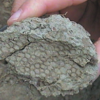
What is a Fossil?
Source Institutions
In this activity about dinosaurs, learners explore how and why fossils form. First, learners are introduced to dinosaur fossils by reading the book "Bones, Bones, Dinosaur Bones" by Byron Barton.

What's In Your Breath?
Source Institutions
In this activity, learners test to see if carbon dioxide is present in the air we breathe in and out by using a detector made from red cabbage.

Future Moon: The Footsteps of Explorers
Source Institutions
In this activity, learners drop impactors onto layers of graham crackers!
